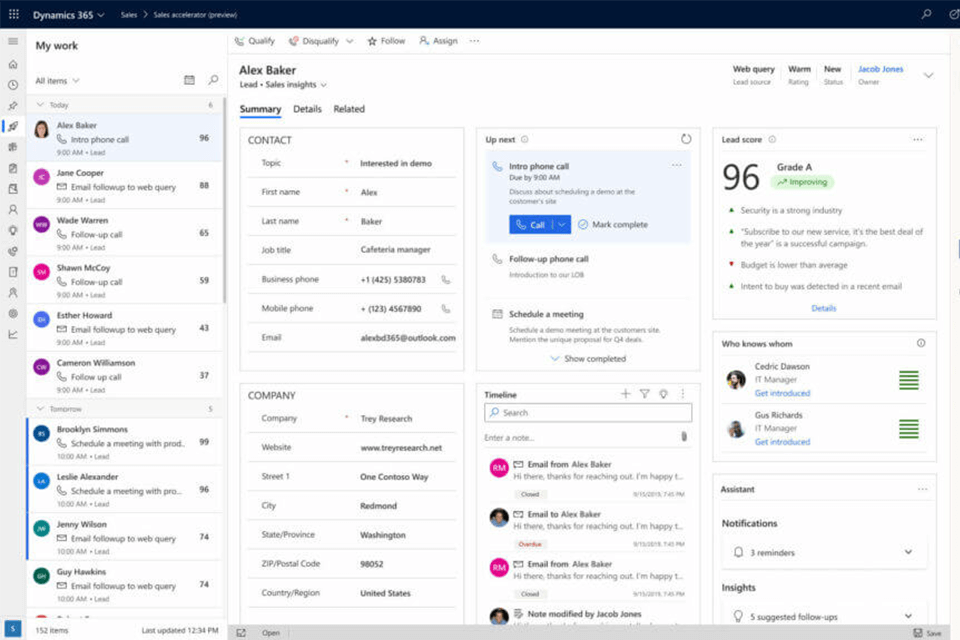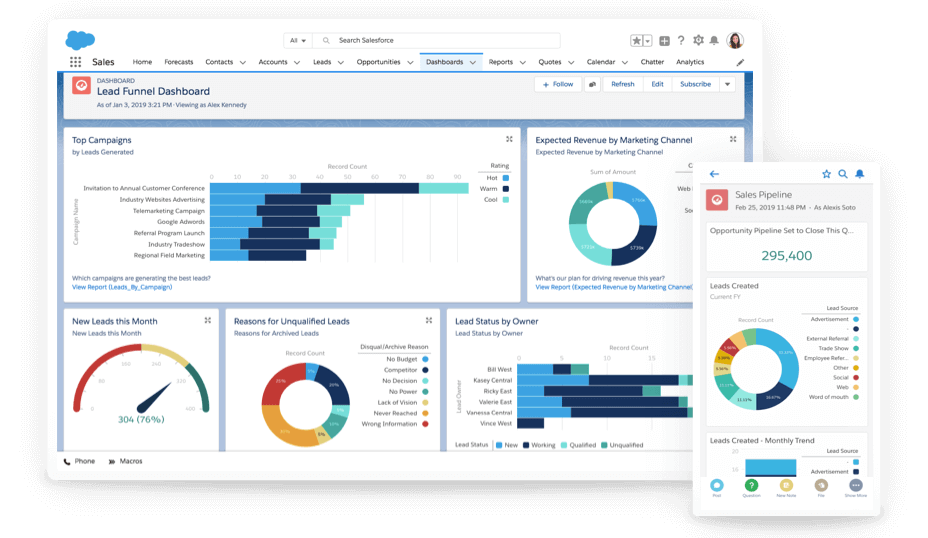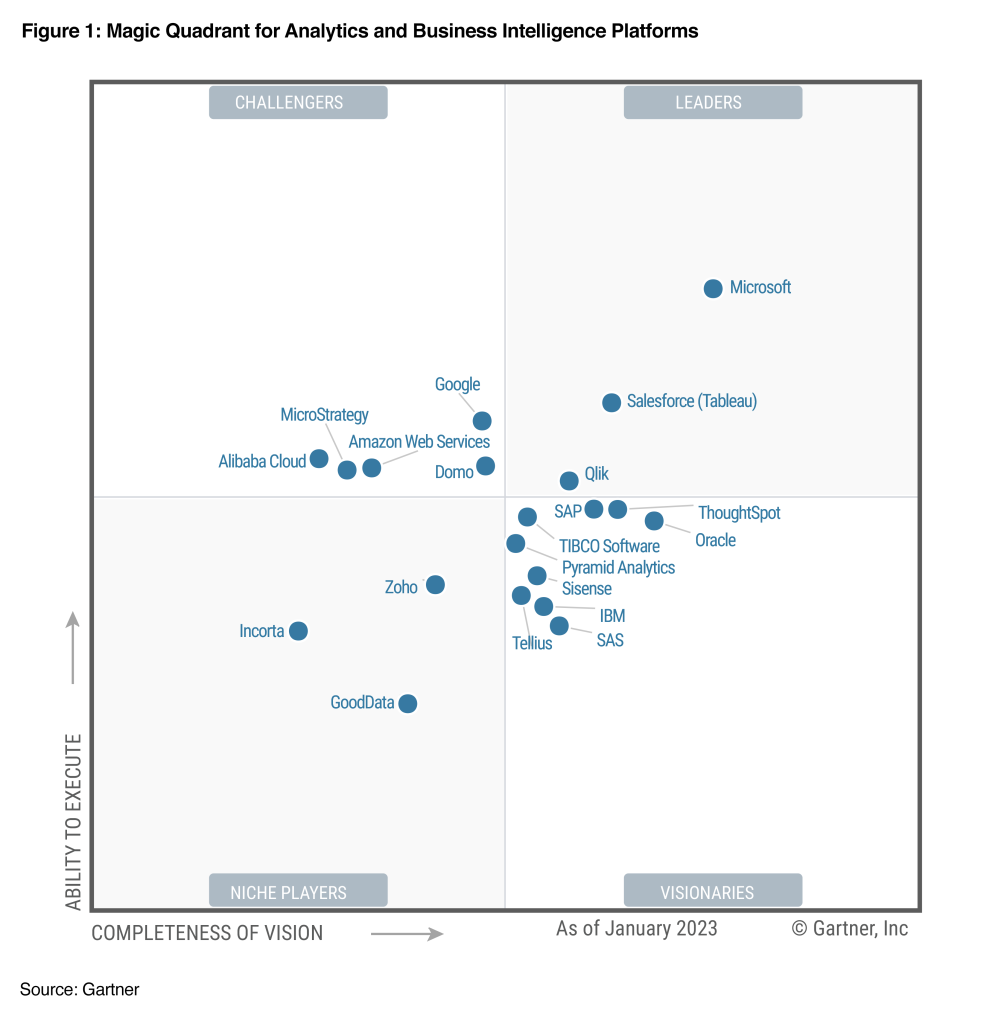Microsoft Dynamics 365 vs Salesforce: CRM Comparison
Microsoft Dynamics 365 vs Salesforce: CRM Comparison
January 29th, 2024
8 min read
You’ve identified that you need a Customer Relationship Management (CRM) system, as implementing one has the potential to transform the way your business works and take efficiency, productivity, and more to the next level.
It’s an exciting idea, but which CRM provider is the right choice? There are plenty of options on the market for every type of organisation, regardless of size or industry. It can be a daunting process, but if you are looking for an established brand or market leader, then you have most likely encountered Microsoft Dynamics 365 and Salesforce.
At a glance, these two CRM providers may seem very similar, and it is hard to distinguish their differences, but there are various ones that could influence your decision for one or the other.
Within this blog, we explore and compare several elements of these two solutions in order to help you choose the best-suited platform for your business needs. We will cover the following areas:
- Round 1: Applications
- Round 2: Price
- Round 3: Integration Capabilities
- Round 4: Deployment Options
- Round 5: Business Intelligence Capabilities
Round 1: Microsoft Dynamics 365 vs Salesforce – Applications
Dynamics 365: Intelligent solutions
Microsoft Dynamics 365 is a portfolio of intelligent business applications that cover both CRM and ERP capabilities. The applications that are a part of the suite are:
- Sales
- Customer Service
- Marketing (Customer Insights)
- Field Service
- Project Operations
- Finance
- E-commerce
- HR
- Supply Chain
Each application listed above has features that are specialised for its specific function; for example, within D365 Customer Service, users can enjoy case management, multi-channel engagement, etc, while in D365 Sales, users can experience lead & opportunity management, seller analytics, and more.
Organisations can combine any of the applications to create one solution that aligns exactly with their requirements, driving productivity and efficiency.

Salesforce: Cloud-focused solutions
Salesforce is a cloud-based Customer Relationship Management (CRM) platform, similar to Microsoft splitting their services into various clouds; Sales Cloud, marketing Cloud, Analytics Cloud, Salesforce Service Cloud and more. However, differently to Dynamics 365, Salesforce then further splits these clouds into sections; for example, the Customer Service Cloud is split into Customer Self Service, Digital Channels, Field Service, and AI for Service.

Winner: No clear winner; both providers offer robust CRM applications.
Round 2: Microsoft Dynamics 365 vs Salesforce – Price
When evaluating a solution, price is often a crucial point in the decision-making process. Here, Dynamics 365 takes the win with its flexible and scalable licensing approach. We discuss some of the pricing factors below:
Pricing: Although Dynamics 365 initially comes with a higher price tag, its cost-effectiveness becomes evident as the user count increases. Explore the detailed cost breakdown of Dynamics 365 on our licensing page.
Discounts: A big difference between Salesforce and Microsoft is how they sell their product. While Salesforce has chosen to keep the software in-house, Microsoft has taken a partner approach. This means that rather than only Microsoft selling their products, there are various Microsoft Partners, such as Pragmatiq, that help organisations implement Dynamics 365. Due to this, prices may vary, with partners having different discounts available, depending on the number of licenses required. Furthermore, organisations already using other Microsoft software, such as the Power Platform or Microsoft 365, stand to benefit from further discounts on Dynamics 365 licenses.
Contract term: A notable difference between these two CRM giants is the payment frequency options. Dynamics 365 provides the flexibility of monthly payments, in contrast to Salesforce, which exclusively offers annual billing only.
All in all, given the extensive contractual obligations and price differences, Dynamics 365 establishes itself as the better option. Particularly, smaller to medium-sized companies may find themselves more inclined to go with Dynamics 365 given them a more cost-effective solution in the long-run.
Winner: Dynamics 365
Round 3: Microsoft Dynamics 365 vs Salesforce – Integration Capabilities
The seamless integration of CRM systems with diverse applications is vital for facilitating collaboration and maintaining accurate, up-to-date data within organisations. The absence of seamless integrations may result in disconnected systems, causing inefficiencies and increasing the potential for errors. Dynamics 365 and Salesforce both integrate with other applications have a look at the pros and cons below.
Microsoft Dynamics 365: The Microsoft Ecosystem Advantage
Pros:
- Dynamics 365’s unified interface allows seamless integration within the Microsoft ecosystem, including Microsoft 365, Power BI, Azure, Teams, Sharepoint, etc., resulting in a fully connected platform for your business needs.
- Similar user experience across all applications, due to shred UI ad brand within the Microsoft ecosystem.
- Wide integration possibilities with other applications beyond the Microsoft ecosystem, such as Zoho, Xero, Mailchimp, and more.
Cons:
- Compared to Salesforce, Dynamics 365 has fewer apps available in their AppSource, however, Microsoft continues to heavily invest in this so we anticipate that this difference will decrease over time.
Salesforce: Open for All
Pro:
- Salesforce offers a vast number of third-party applications through the Salesforce AppExchange (more than 3,000 apps), offering high flexibility to users.
Con:
- Lack of native integrations compared to Microsoft Dynamics 365, all additions are third-party.
Winner: There is no clear winner for this round, with both CRM providers having the ability to integrate with other applications. However, for organisations already using the Microsoft stack, Dynamics 365 may be the better option.
Round 4: Dynamics 365 vs Salesforce – Deployment Options
When it comes to deployment, Microsoft Dynamics 365 offers a host of options: on-premises, cloud or hybrid while Salesforce is purely cloud-based. By offering multiple deployment options, Microsoft Dynamics 365 is more accessible to businesses that need alternative options to a cloud-only approach.
Winner: Dynamics 365
Round 5: Dynamics 365 vs Salesforce – Ease of Customisation
Both D365 and Salesforce come with standard off-the-shelf functionality, which can then be customised to create a bespoke solution depending on the needs of your organisation. For Dynamics 365 there are extensive changes that can be made to meet the exact requirements of a customer, ensuring that the solution fits perfectly around their processes and requirements. On top of that, Dynamics 365 leverages universal web development tools such as Javascript, .Net, and HTML,
On the other hand, Salesforce has more limited customisation options, which are in general slower to implement due to its multi-client cloud environment. While overcoming this is of course possible, it often results in more time-consuming, costly and resource-dependent processes. Additionally, Salesforce has its own proprietary programming language making it harder to customise by non-salesforce employees.
Winner: Dynamics 365 takes the win in this round, as it makes it easier to implement customisations across the board. Discover more advantages of the platform in our Benefits of Dynamics 365 blog.
Round 6: Dynamics 365 vs Salesforce – Business Intelligence Capabilities (Reporting)
Both Dynamics 365 and Salesforce have various similarities when it comes to reporting:
- Both platforms have built-in reporting, which makes it easy for non-technical users to build the reports and charts they need.
- Both CRM providers also have additional business intelligence applications that can be added. For Dynamics 365, this is Power BI and for Salesforce it is the Analytics Cloud.
- Each of the reporting tools makes enables your organisation to generate and analyse reports, gather real-time data, provide actionable insights, and display information in interactive dashboards.
Difference:
- Power BI is recognised as a Leader in the 2023 Gartner Magic Quadrant for Analytics and Business Intelligence Platforms, for the 16th consecutive year. This demonstrates the advanced capabilities of the tool in comparison with other options, making it the go-to for complex data analysis
Winner: Dynamics 365 with its seamless Power BI integration, is the best solution for high-volume, complex data analysis. Learn more about integration in our blog about Dynamics 365 Integrating with Microsoft Power BI.

Conclusion: Dynamics 365 vs Salesforce
As you can see from this blog post, the functionality and features that Microsoft Dynamics 365 and Salesforce offer have similarities. Due to this, it can be difficult to decipher which one is necessarily ‘better’ than the other.
Both are industry leaders, offering extensive features, a scalable platform, and the ability to build bespoke, unique solutions fit for your organisation with additional modules and integrations from their online stores. However, overall, it appears that Microsoft Dynamics 365 offers more flexibility and affordability. On top of this, if your business is already invested in the Microsoft eco-system (such as Microsoft Outlook, SharePoint, Word etc) then implementing Microsoft Dynamics 365 makes more business sense, as everything is supported by one vendor and connects seamlessly for an end-to-end solution.
All in all, which CRM provider is better for you depends on your requirements, budget, and existing technology.
Get in touch
If you would like more information about Microsoft Dynamics 365, please get in touch via email at info@pragmatiq.co.uk or call us on 01908 038110.
Want to keep in touch?
Sign up to our newsletter for regular updates.
"*" indicates required fields


